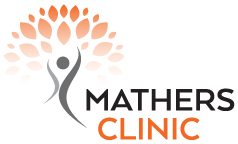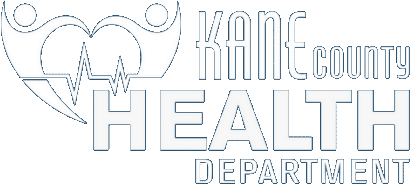ATTENTION DEFICIT HYPERACTIVITY DISORDERS
OUR SERVICESAttention Deficit Hyperactivity Disorders
Can’t Focus? Constantly Move About? Interrupt Others Often?
What Is ADHD?
Is it hard to pay attention? Do you feel the need to move constantly? Do you find yourself always interrupting others? If these issues are negatively impacting your daily life, it could be a sign of attention-deficit hyperactivity disorder (ADHD).
ADHD is a disorder that makes it difficult for a person to pay attention and control impulsive behaviors. It causes those who have ADHD to be restless and almost constantly active.
ADHD is often mistaken as a childhood disorder, but it can continue through adulthood. The symptoms of ADHD begin in childhood and can continue through adolescence and adulthood. The hyperactivity tends to improve as a child becomes a teen, problems with inattention, disorganization, and poor impulse control often continue through the teen years and into adulthood.
Warning Signs Of ADHD
People with ADHD show three different types of symptoms:
- Hyperactivity – is overactive, moving about, not able to focus
- Inattention – has difficulty paying attention
- Impulsiveness – acting without thinking
The symptoms mentioned above can get in the way of daily functioning and/or development. Those who have ADHD will have their own unique combination of these symptoms:
- Difficulty paying attention: while having conversations, listening to lectures, while playing and reading materials that are lengthy
- Easily distracted or sidetracked: by other stimuli and unrelated thoughts
- Forgetting daily routines: keeping appointments, returning calls, chores and errand
- Failing to follow instructions for: homework, chores, work and other activities
- Difficulty listening while someone is speaking directly to them
- Missing details: making careless mistakes at school, work or during other activities
- Problems organizing tasks and activities while: doing tasks that must be completed in sequence
- Cannot keep: materials and belongings in order, organized work space, meeting deadlines and order for time management
- Losing things that are needed to complete tasks and/ or activities: school supplies, tools, wallets, keys, paperwork, eye glasses and cell phone
- Avoiding tasks that are not liked or that require lengthy mental effort: homework, reports, forms or looking at lengthy paperwork
Symptoms Of Hyperactivity And Impulsiveness:
- Inappropriately running, climbing, jumping and restlessness in situations where it is not appropriate
- Exclaiming answers before a questioned is finished
- Finishing others people’s sentences
- Talking non-stop and/or speaking out of turn in a conversation
- Difficulty waiting for their turn
- Unable to engage in activities quietly while: playing, working and engaging in a hobby
- Interrupting or interjecting on others during: conversations, work, play or activities
- Inability to keep still or constantly in motion: fidgeting, squirming or constantly on-the-go
- Cannot stay still in situations where staying seated is expected: in the classroom, in the office, in an auditorium or in an air plane
Exhibiting these symptoms does not mean a person has ADHD. Other disorders like anxiety, depression, and certain types of learning disabilities, can have similar symptoms.
If you are concerned about whether you or your child may have ADHD, first talk to your physician to see if the symptoms fit the diagnosis. The diagnosis can be made by a mental health professional, like a psychiatrist or clinical psychologist, primary care provider or pediatrician.
Treating ADHD
There is no cure for ADHD, but there are treatments that can help reduce symptoms and improve daily functioning. ADHD can be treated with pharmacotherapy, education, utilizing skill sets, therapy and/or a combination of these treatments.
Medications For ADHD
ADHD medications reduce hyperactivity and impulsivity. These medications help to improve their ability to focus, work and learn.
Stimulants: Stimulants are effective because the medication increases the brain chemical dopamine, which plays essential roles in thinking and attention. There are some common side effects that can be associated with taking stimulants.
Non-Stimulants: Non-stimulants can improve focus, attention, and impulsivity in a person with ADHD. They tend to take longer than stimulants to start working and they do not have the same side effects as stimulants which make them a good alternative treatment.
Antidepressants: Antidepressants are sometimes used to treat adults with ADHD. They are not approved by the U.S. Food and Drug Administration (FDA) specifically for the treatment of ADHD, but like stimulants, affect the brain chemicals norepinephrine and dopamine.
Occasionally, several different medications or dosages must be tried before finding the one that works for each patient. Anyone taking medications must be monitored closely and carefully by their prescribing physician or nurse. If you have any problems with your medications or if you are worried that it might be doing more harm than good, call your physician right away. Your physician will be able to adjust the dosage or change your prescription to a different one that may work better for you.
Therapy For ADHD
Research shows that therapy alone may not be effective in treating ADHD symptoms. On the other hand, adding therapy to an ADHD treatment plan may help patients and families to better cope with challenges that can occur everyday.
Children, adolescents and young adults with ADHD, need assistance from parents and teachers to stay organized and follow directions. Utilizing skill sets of keeping a routine and a schedule, organizing everyday items, using notebook organizers for homework, and giving them recognition and/or rewards when these skill sets are followed.
Adults with ADHD, need a licensed mental health provider or therapist, to learn how to organize their life with skill sets: keeping routines, breaking down large tasks into manageable smaller tasks.
Education And Training
Those with ADHD, children and adults need guidance and understanding. They need the support of their parents, families, friends and teachers to reach their full potential.
Mental health professionals can educate the parents about the ADHD and how it affects a family. They can also help the child and parent(s) to develop new skill sets, attitudes and ways to relate to each other. The development of new skills can include:
- Parenting Skills – giving parents the skills they need to encourage and reward positive behaviors in their children
- Stress Management Techniques – benefiting the parents of children with ADHD. Aiding in the ability to deal with the frustration and pressures they must overcome and allow them to respond calmly to their child’s behavior.
- Offering support groups and seminars can help parents and families connect with others who have similar issues and concerns.
A combination of behavioral therapy, counseling and support can help those with ADHD and their families to cope with everyday issues.
Contact Mathers Clinic
Contact us to schedule an appointment with a psychiatrist or for more information about our services by calling (815) 444.9999. You may also email us at info@themathersclinic.com. We look forward to helping you meet with a psychologist at a time that works well for you.
815.444.9999 |
|
Download Self-Rating Scale
Please download, print and fill out the form below. Do you need Adobe Acrobat Reader DC? It’s free – CLICK HERE.

Respectfully Caring for the Emotional Well Being of Individuals & Families.
Communication Enhancement
Conflict Resolution Therapy
Counseling: Individual, Group & More
Domestic Violence
Mindfulness & Medication
Types of Therapy
Crystal Lake Office
145 South Virginia Street
Crystal Lake, Illinois 60014
phone: 815.444.9999
fax: 815.986.1363
Crystal Lake Business Hours
Monday 8:00am - 7:00pm
Tuesday 8:00am - 7:30pm
Wednesday 8:00am - 6:00pm
Thursday 8:00am - 5:00pm
Friday 8:00am - 5:00pm
Saturday 9:00am - 12:00pm
Sunday Closed
Woodstock Office
715 West Judd Street
Woodstock, Illinois 60098
phone: 815.444.9999
fax: 815.986.1363
Woodstock Business Hours
Monday 9:00am - 5:00pm
Tuesday 9:00am - 7:00pm
Wednesday Closed
Thursday 9:00am - 7:00pm
Friday 8:00am - 5:00pm
Saturday Closed
Sunday Closed
Elgin Office - New Location!
420 Airport Road, Suite C
Elgin, Illinois 60123
phone: 847.462.6099
fax: 847.628.6064
Elgin Business Hours
Hours Coming Soon!
Call 847.462.6099
for an Appointment
Mathers Community Mental Health Center Affiliates:
THE MATHERS RECOVERY
Federally licensed facilities for opiate/opioid treatment. Full range service for detoxification.
THE MATHERS CLINIC & MATHERS RECOVERY
Funding for this project was provided in partby the Kane County Health Department.
